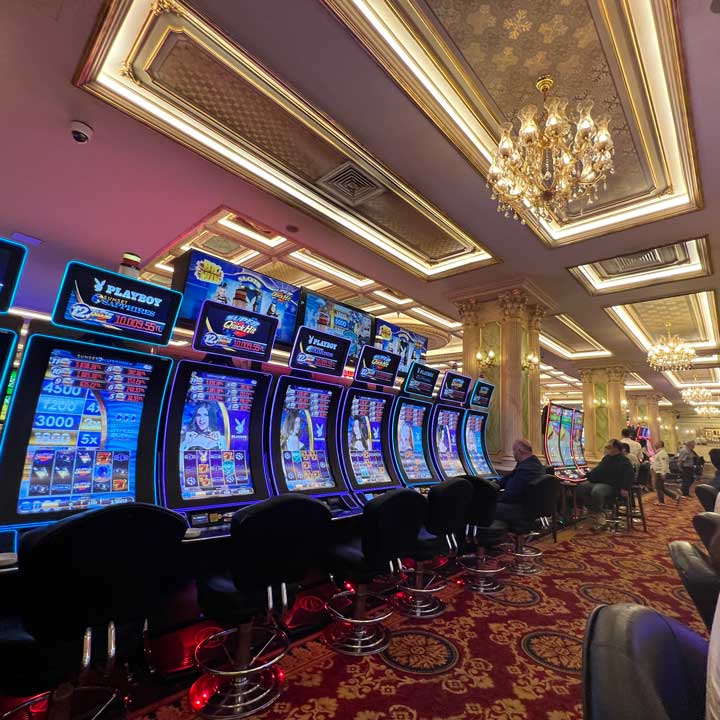
In the world of gambling, in which chance and strategy intersect, a unique tapestry of beliefs emerges—one that braids luck, fate, and the enigmatic nature of casino games. Casinos, bustling with excitement and anticipation, are not just places for placing bets; they are also arenas where superstitions thrive. From the novice player to the seasoned gambler, these mysterious practices often shape how individuals approach the games they play, believing that their actions can affect the outcome in ways that go beyond mere probability.
As players gather around roulette wheels, blackjack tables, and slot machines, the atmosphere is thick with stories of lucky charms, rituals, and codified behavior that defy logic yet provide a sense of comfort. It could be the case that it’s wearing a specific outfit, following a particular sequence of bets, or even avoiding certain numbers, the attachment to various superstitions reflects a deep-rooted desire to control the uncontrollable. This article delves into the captivating world of casino game superstitions, investigating the beliefs that simultaneously entertain and mystify those who dare to play. sayapbola
Historical Origins of Superstitions
Gambling games have long been interwoven with an host of superstitions that trace to ancient civilizations. The beginnings of these beliefs can be associated to humanity’s fundamental need to manage the random outcomes connected with luck and chance. In primitive civilizations, games of chance were often tied to religious practices. Players would invoke aid or seek favor from gods, believing that their actions could change the odds in their advantage. This basis laid the foundation for the myriad of superstitions that developed as casino games evolved over time.
During the Middle Ages, gambling became a common activity across the continent, and with it, a rich tapestry of superstitions emerged. Participants adopted various rituals and charms, believing they could change the consequences of games. The importance of numbers, in particular, started to manifest in superstitions around card games and dice. The number 7 was often considered auspicious, while other numbers carried negative connotations. These ideas mirrored the social contexts of the time, evolving as they passed through generations and transformed to new gaming environments.
As casinos emerged in the 1600s, particularly in the Italian peninsula and France, the atmosphere surrounding betting became steeped in enigma. The growing accessibility of gambling games allowed for the dissemination and growth of superstitions among players. Concepts like charmed charms, designated seating locations, and rituals gained prevalence, creating a distinct culture within casinos. As these customs continued to thrive, they became fundamental to the essence of casino activities, illustrating how the past and culture shape the belief systems that influence how players engage with luck.
Popular Gambling Superstitions
Beliefs surrounding gambling games are abundant and varied, reflecting the hopes and fears of players as they participate in random games. One of the most common beliefs is that certain digits bring fortune or misfortune. For example, the number 7 is often seen as a favorable number, frequently sought after by gamblers looking for a positive outcome. Conversely, the digit thirteen is routinely considered unlucky, leading many gamblers to avoid it during their gambling sessions.
A frequent belief relates to rituals that gamblers believe can affect their odds. Whether blowing gently on the dice before a roll, using a specific gesture to place a wager, or even wearing particular items of attire, many people feel that these actions can sway fate in their benefit. These practices offer a feeling of control in an otherwise unpredictable environment, reinforcing the idea that luck can be manufactured through personal beliefs and habits.
Lastly, the environment and atmosphere of the casino itself contributes to myths. Many gamblers suggest that the presence of certain icons, such as four-leaved clovers or fortunate coins, can enhance their odds of success. Additionally, players might adhere to the belief that victory streaks can be halted by mundane events, such as a person passing by or a spill at the gaming surface. The collective atmosphere in a gambling house can amplify these superstitions, creating a shared culture of superstitions that goes beyond individual experiences.
Impact of Superstitions on Players
Superstitions play a significant role in the psychology of casino players, often influencing their actions and choices. Many gamblers think that luck can be influenced through various rituals, such as wearing a lucky charm, selecting specific colors, or steering clear of particular digits. This dependence on superstitions can create a feeling of control in an environment that is intrinsically unpredictable. Players often feel more self-assured and involved when they think that their actions could sway the outcome of a game in their advantage.
The influence of these superstitions extends past singular players, affecting the general atmosphere within the casino. For example, a player who believes in the luck of a particular slot machine might attract a crowd, as others are fascinated by their apparent success. This shared belief can heighten excitement and create a lively environment, leading to an interesting experience even for those who may not necessarily be superstitious. The excitement around specific games can lead to higher participation and longer playing sessions, supporting the casino’s vibrant social scene.
In some instances, superstitions can lead to detrimental effects for players. Relying too much on rituals can result in bad gambling decisions, as some may ignore basic strategies in favor of baseless beliefs. Additionally, the pressure to perform rituals may heighten anxiety and tension, detracting from the pleasure of the experience. Ultimately, while superstitions can enhance the excitement of playing casino games, they can also lead to poor choices that overshadow the enjoyment and entertainment intended in the casino experience.
